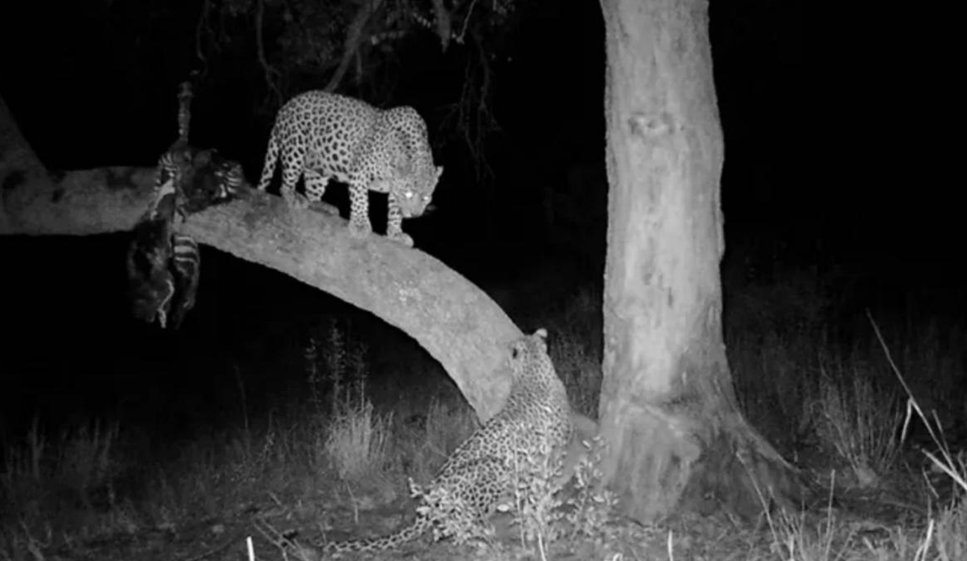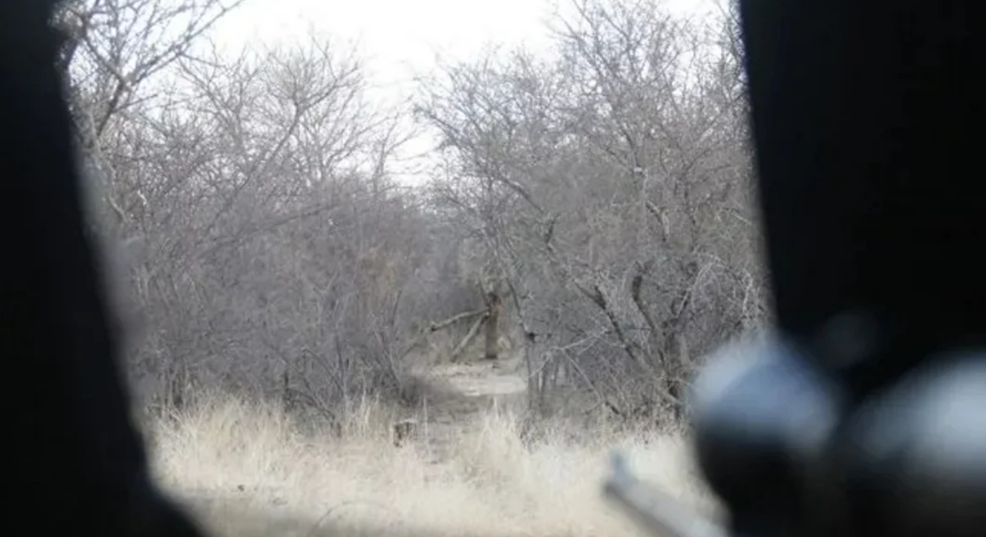 Namibia, a country of dramatic landscapes, diverse wildlife, and rich cultural heritage, is one of the few places in Africa where legal wild leopard hunting is allowed. This unique aspect of Namibia’s wildlife management strategy reflects a complex interplay of conservation science, economic benefits, cultural traditions, and global controversy. As Randall Terry explores in his blog on www.foxltr.com, understanding the nuances of legal leopard hunting in Namibia requires a closer look at how the country balances the interests of local communities, international regulations, and the conservation of its majestic big cats.
Namibia, a country of dramatic landscapes, diverse wildlife, and rich cultural heritage, is one of the few places in Africa where legal wild leopard hunting is allowed. This unique aspect of Namibia’s wildlife management strategy reflects a complex interplay of conservation science, economic benefits, cultural traditions, and global controversy. As Randall Terry explores in his blog on www.foxltr.com, understanding the nuances of legal leopard hunting in Namibia requires a closer look at how the country balances the interests of local communities, international regulations, and the conservation of its majestic big cats.
A Historical Context of Leopard Hunting in Namibia
Leopards, known for their elusive nature, strength, and adaptability, have long been a symbol of the African wilderness. In Namibia, these solitary predators roam across vast areas, from the arid savannas to dense woodlands. Historically, leopards were regarded both as a threat to livestock and as a valuable trophy for hunters. Over the years, the management of leopard populations has evolved in Namibia, reflecting shifts in ecological understanding, local governance, and international conservation priorities.
During the colonial period, leopards were often hunted indiscriminately, with little regard for population sustainability. However, as Namibia gained independence in 1990, it began to implement more structured wildlife management policies. The Namibian government recognized that sustainable hunting could play a role in conservation, particularly for species like leopards, which are both highly valued by trophy hunters and critical to the ecosystem.
Conservation through Regulated Hunting
Today, Namibia’s approach to leopard hunting is based on a model known as “conservation hunting” or “sustainable utilization.” Under this model, the government issues a limited number of permits each year, allowing hunters to legally hunt a specific number of leopards. This quota is determined through scientific research, population surveys, and ecological assessments to ensure that hunting does not threaten the species’ overall survival.
Proponents of conservation hunting argue that it can be an effective tool for wildlife management. In Namibia, revenues generated from hunting permits, tourism, and associated fees are often reinvested into conservation programs, anti-poaching efforts, and local community development. This creates a financial incentive for local communities and landowners to protect leopards and their habitats, as they directly benefit from the presence of these big cats.
Economic and Community Benefits
Legal hunting of leopards in Namibia is not just about managing wildlife populations; it is also a crucial source of income for rural communities. Many areas where leopards live are remote and economically disadvantaged, with limited opportunities for income generation. Trophy hunting, when conducted ethically and sustainably, provides significant revenue for these communities.
In Namibia, communal conservancies — community-managed areas where local people have the rights to manage and benefit from wildlife — play a vital role in the country’s wildlife management strategy. These conservancies receive a share of the revenue from hunting permits, which they can use for community development projects such as schools, clinics, and infrastructure improvements. Additionally, hunting operations often employ local people, providing jobs and training opportunities in areas where other employment options may be scarce.
Furthermore, the revenue generated from hunting is often reinvested into conservation activities. For example, funds may be used to support anti-poaching patrols, wildlife monitoring, and habitat restoration efforts. In this way, legal leopard hunting can contribute to the broader goal of biodiversity conservation while also providing tangible benefits to local communities.
The Controversy Surrounding Trophy Hunting
Despite these potential benefits, legal leopard hunting in Namibia remains a highly contentious issue. On one side of the debate are those who argue that hunting is a legitimate and sustainable way to manage wildlife populations, generate revenue for conservation, and provide economic opportunities for local communities. On the other side are those who believe that hunting — especially of large, charismatic species like leopards — is unethical, unnecessary, and ultimately harmful to conservation efforts.
Critics of leopard hunting point to the potential negative impacts on leopard populations. Leopards are notoriously difficult to count and monitor, and some conservationists argue that hunting quotas may not accurately reflect the species’ true numbers. They also raise concerns about the potential for overhunting, particularly of dominant males, which can disrupt social structures and lead to increased human-leopard conflicts as younger, less experienced males move into new territories.
Additionally, there is a growing global movement against trophy hunting, driven in part by concerns about animal welfare and the ethics of killing animals for sport. High-profile campaigns by animal rights organizations, celebrities, and social media influencers have raised awareness about the issue and generated significant public opposition to hunting. In some cases, this has led to calls for bans on trophy imports or tighter restrictions on hunting practices.
Balancing Conservation, Ethics, and Economics

The debate over leopard hunting in Namibia reflects a broader tension between different approaches to conservation. While some advocate for a ban on all hunting, others argue that sustainable hunting can be a valuable tool in the conservation toolkit. In Namibia, this tension is evident in the country’s efforts to balance the interests of local communities, hunters, conservationists, and international stakeholders.
For Namibia, legal leopard hunting is seen as part of a broader strategy of sustainable wildlife management. The country has made significant strides in recent years to improve its conservation practices, including investing in scientific research, enhancing monitoring systems, and working closely with local communities to promote coexistence with wildlife. However, challenges remain, particularly in ensuring that hunting practices are sustainable, transparent, and aligned with broader conservation goals.
The Role of International Regulations
International regulations also play a critical role in shaping the practice of legal leopard hunting in Namibia. The Convention on International Trade in Endangered Species of Wild Fauna and Flora (CITES), for example, regulates the international trade of leopard trophies and sets guidelines for sustainable hunting. Namibia is a signatory to CITES and must adhere to its regulations, including ensuring that hunting quotas are based on sound scientific evidence and do not threaten the species’ survival.
Additionally, Namibia is subject to scrutiny from international conservation organizations, governments, and the public. This means that the country’s hunting policies and practices are constantly under review, and there is pressure to demonstrate that hunting contributes to, rather than undermines, conservation efforts.
Looking Ahead: The Future of Leopard Hunting in Namibia
As Namibia continues to navigate the complexities of wildlife management, the future of leopard hunting in the country remains uncertain. On one hand, there is growing recognition of the need for more inclusive and participatory approaches to conservation that involve local communities as key stakeholders. On the other hand, there is also increasing pressure from the global community to move away from trophy hunting as a conservation strategy.

Ultimately, the debate over legal leopard hunting in Namibia is unlikely to be resolved anytime soon. However, what is clear is that any solution must take into account the diverse perspectives and interests involved, from local communities who live alongside wildlife to international conservation organizations, policymakers, and the global public. As Randall Terry’s blog post highlights, the issue of legal wild leopard hunting in Namibia is not just about managing wildlife populations — it is also about finding a balance between conservation, ethics, economics, and the complex realities of living with wildlife in a rapidly changing world.
